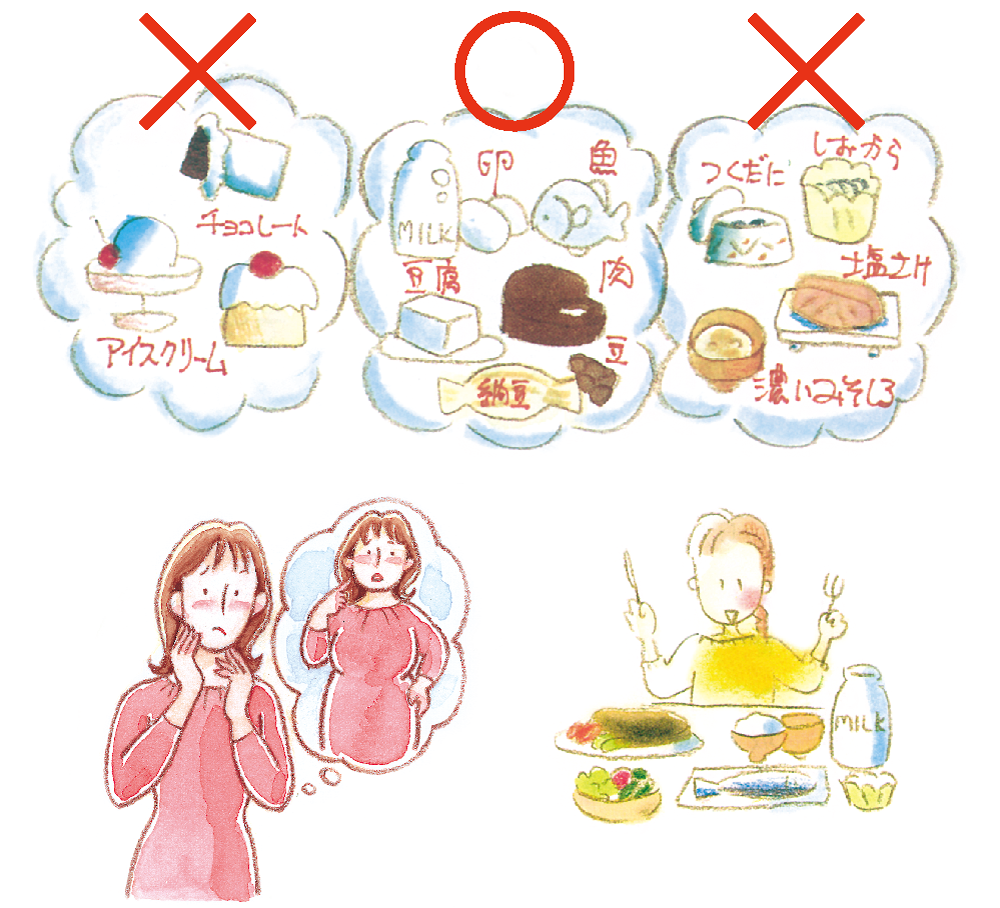Managing Mom's Meals
Dietary Considerations
Ensuring adequate nutrition is crucial, not just during pregnancy but also postpartum, to aid your body's recovery process.
An imbalanced diet may lead to weight gain; hence, it's essential to consume a balanced diet. Focus particularly on high-quality proteins (such as white fish, meat, eggs, and beans), vitamins (from vegetables and fruits), calcium (from milk), and iron (from soybeans, bonito, spinach, and mustard greens).
Breastfeeding and Nutrition
When breastfeeding, your dietary needs increase by approximately 350 kilo calories beyond your regular intake. It's beneficial to add extra meals or snacks around 10:00 a.m., 3:00 p.m., and a light midnight snack to support this. Staying hydrated with milk, soups, and other fluids can also boost breast milk production.
Postpartum obesity
It's common to be a few kilograms heavier postpartum than before pregnancy. With adequate breastfeeding, it's possible to return to your pre-pregnancy weight within about six months. If your weight remains above pre-pregnancy levels after a year, the primary factors could be overeating and insufficient physical activity. While it's important to nourish your body during pregnancy and while breastfeeding, be mindful not to overindulge later.
Should you transition to mixed or formula feeding due to low milk supply, be aware that failing to adjust your calorie intake could lead to weight gain. Balancing nutrition and exercise, while keeping an eye on your milk production, is key.

FAQ
QDoes a mother's diet affect breast milk?
AThe flavor of breast milk can vary based on the mother's diet. Babies, sensitive to taste nuances, may react negatively to changes by refusing to nurse or crying.
During breastfeeding, it's advisable to avoid high-fat and sugary foods like snacks and cakes, as well as sodas and fast food. Be mindful of seasoning usage and steer clear of stimulants like spices. Tobacco and alcohol are strictly off-limits. Striving for a balanced diet, irrespective of personal food preferences, ensures your breast milk is appealing to your baby.
QI couldn't eat all the hospital food because I have a small appetite. Do I need to eat a lot of nutritious food to breastfeed?
AHistorically, new mothers were encouraged to consume nutrient-rich delicacies post-birth. Yet, for those in the modern era who generally have a well-rounded diet, indulging in daily celebratory meals might lead to overnutrition.
Opting for Japanese cuisine, known for its light and stomach-friendly flavors—like rice, miso soup, vegetables, and fish—is ideal. In the initial postpartum days, despite active milk production, consuming highly nutritious foods might lead to breast engorgement and discomfort, so moderation is key.
If you can only eat small amounts at a time, nutritious snacks like rice balls or soups can help maintain hydration and nutrition.
QWhat If I’m Not Skilled at Cooking Balanced Meals?
AInterest in nutrition is beneficial for both weaning and educational purposes, but lacking culinary skills shouldn’t discourage you. There is no need to overdo it.
Simple cooking methods, like enriching miso soup with various vegetables or serving microwaved fish or chicken with ponzu or mentsuyu sauce, can create nutritious meals without elaborate preparations.
When craving yakiniku, opt for a Korean BBQ restaurant, focusing on vegetable dishes and soups, and wrap meat in vegetables to moderate intake. Utilizing convenience stores for healthier options like rice balls, miso soup, vegetable sides, or tofu over prepackaged meals can also help maintain a balanced diet.
Embrace the skill of selecting nutritionally balanced options, whether from prepared store-bought foods or dining out.
